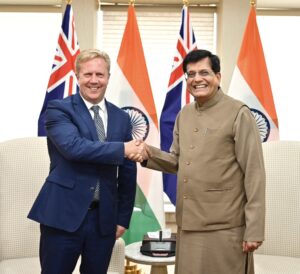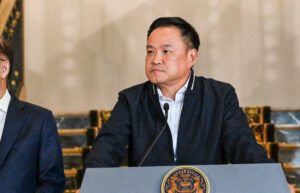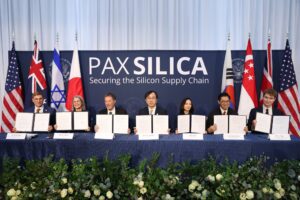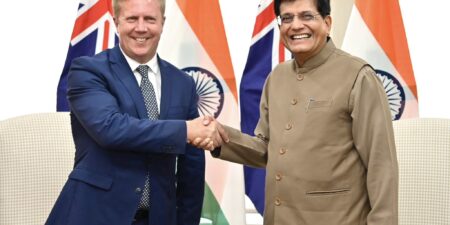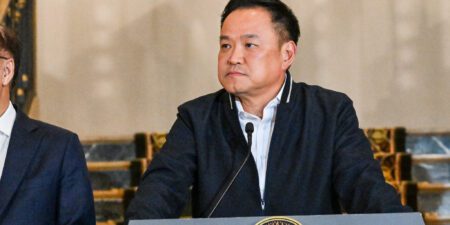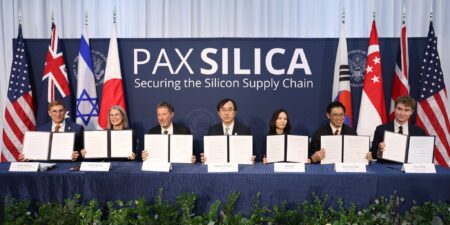
Australia-US Relationship Hits Turbulence

The BGA Australia team, led by Managing Director Michael “Mick” McNeill, wrote an update to clients on developments in Australia-US relations.
Context
- The center-left Labor government, led by Prime Minister Anthony Albanese, is facing a challenging period as it seeks to manage U.S. demands to lift defense spending. Conservative critics and defense hawks have criticized Albanese for not yet meeting Trump and for rhetoric that could be interpreted as the Labor government distancing itself from its most vital security partner. Politically dominant after a crushing election victory two months ago, Albanese appears unfazed and in no rush to appease Trump, who is unpopular with Australians and the Labor Party rank and file.
- The U.S. Defense Department confirmed June 12 that it was reviewing the AUKUS (Australia-United Kingdom-United States) trilateral security partnership — established under the previous administration of President Joe Biden — to ensure it aligned with Trump’s “America First” agenda. Some viewed this as leverage to force Australia to lift defense spending. Others perceived the review as reflecting U.S. concerns that the construction of three Virginia-class submarines for Australia — Australia is contributing funding to the U.S. shipbuilding industrial base — would come at the expense of U.S. efforts to counter China. Under AUKUS, the HMAS Stirling naval base — near Perth — would essentially become a base for U.S. submarines. Australian commentators on the political left and right have called for a discussion about the benefits and risks of U.S. force posture in Australia in addition to Australia’s role in a potential U.S.-China conflict over Taiwan.
Significance
- The United States has been Australia’s most important security partner since the 1940s. The relationship was formalized in the ANZUS (Australia-New Zealand-United States) Treaty signed in 1951 — the United States suspended its treaty obligations to New Zealand in 1986 — and when Australia joined the “Five Eyes” intelligence-sharing alliance in 1956.
- Australia maintains strong bipartisan support for the U.S. alliance and for its trade and investment relationship with the United States, which is Australia’s top foreign direct investor. Australia hosts joint defense and intelligence facilities, and U.S. Marines regularly rotate through northern Australia. Australia and the United States host the bilaterally designed Exercise Talisman Sabre every two years. It is the largest military exercise held in Australia and features personnel from several countries.
Implications
- Critics are evaluating how Albanese is handling the U.S. alliance amid the Trump administration’s review of the AUKUS submarine agreement. AUKUS was negotiated under the previous center-right government of Prime Minister Scott Morrison, and a large section of Australia’s political left would be comfortable if it fell apart. Albanese continues to publicly support AUKUS as defense experts push for a public conversation about what U.S. force posture in Australia should look like in the long term. It is unclear whether this is impacting Australian efforts to lower U.S. tariffs. Separately, Albanese is expected to meet Chinese President Xi Jinping and Premier Li Qiang in Beijing this month.
We will continue to keep you updated on developments in Australia as they occur. If you have any questions or comments, please contact BGA Australia Managing Director Michael “Mick” McNeill at mmcneill@bowergroupasia.com.
Best regards,
BGA Australia Team

Michael McNeill
Managing Director
Mick is a highly-experienced government relations expert and trusted advisor on consensus building, conflict resolution and legislative developments. He has played an integral role in helping parties achieve desired outcomes in areas of national security, health policy, foreign policy and reputational crisis management, as well as media relations, communications campaigns, immigration and human rights. Mick has two decades’ experience working with government as a media analyst, political adviser and NGO advocacy manager. After a stint serving as an adviser to an Australian senator, Mick took on the role of the locally engaged senior political specialist at the U.S. Embassy in ... Read More
×

















